Students begin summer research on the Eastern Shore of Virginia
Randolph’s Summer Research Program is a competitive, paid program that gives students the chance to work closely with faculty members conducting research in their areas of interest. This story is part of an ongoing series featuring the work being done on campus this summer.
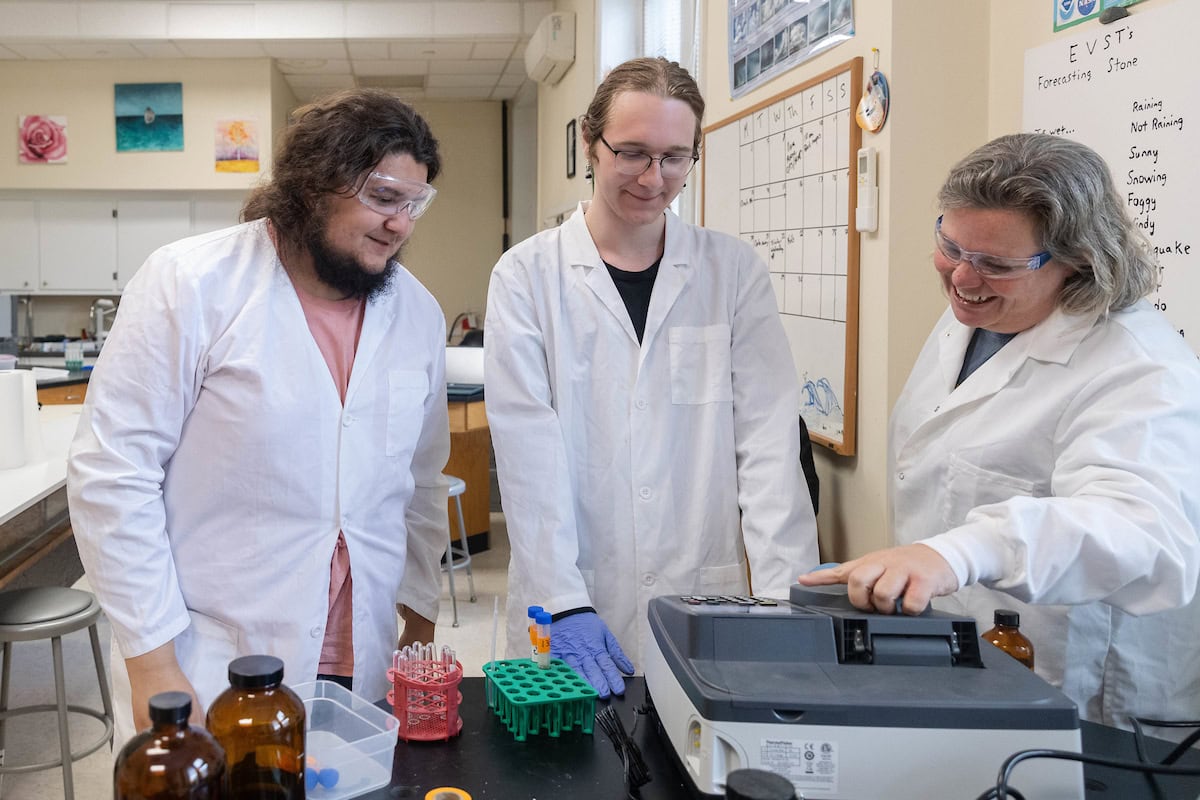
Alex Archinal ’27, Jarad Walker ’27 and professor Sarah Sojka work in the environmental science lab.
Professor Sarah Sojka’s latest Summer Research Program project brings together two fields—marine science and computer science—that, at first glance, might not seem like a natural fit.
“A lot of students don’t see the places where subjects like these can work together, but having some background in both can be powerful and put you in a great space,” said Sojka, a professor of environmental studies and physics, who is leading Randolph’s new marine science program.
“There’s so much programming needed in so many different fields,” she added. “Understanding algorithms and data is going to help you in all of these other areas.”
The project is examining variation in the photosynthetic pigments found in eelgrass and seashore salt grass. She and her team—biology major Jarad Walker ’27 and computer science major Alex Archinal ’27—began their summer collecting samples from the Eastern Shore of Virginia.
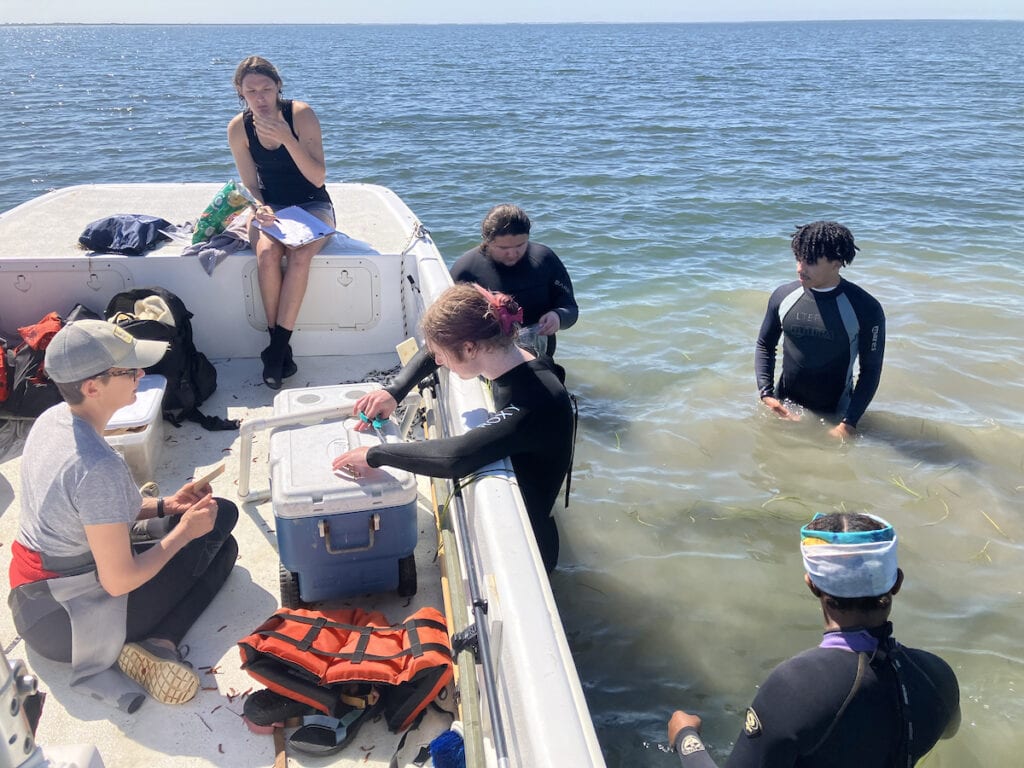
After processing and analyzing them in the lab, they’ll input their data into a program Archinal will adapt.
“It combines field and lab skills, as well as computer and data analysis skills,” Sojka said. “It checks off lots of boxes.”
Grassy, coastal ecosystems, including the salt marshes and seagrass beds they took samples from, are highly productive, critical for coastal food webs, and threatened by human activities.
The photosynthetic pigments they are studying are essential for the survival of plants and allow them to capture energy from the sun. Looking at the variability in those pigments provides insight into how the plant would respond to future stressors, in particular rising sea levels.
“Part of the research we’re doing is studying how marsh grasses are affected by different stress gradients,” Walker explained. “Marshlands get flooded pretty frequently, but different elevations get more water than others. We took samples from three different locations to see how the plant will be affected by sea levels rising due to climate change, and how it will adapt.”
They took seagrass samples from multiple locations as well, to see how different seawater depths affect the plant, as well as soil samples to look at how they absorb carbon from the atmosphere.
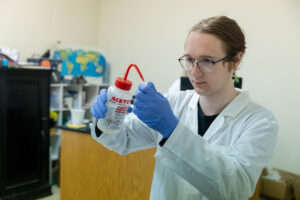
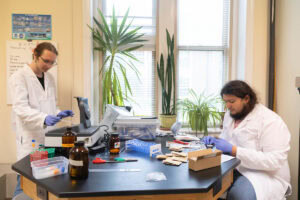
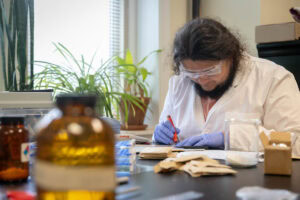
“Marshland conservation is a big thing at the moment, along with seagrass conservation,” Walker said. “As we help these ecosystems rebuild themselves, hopefully, we can see how they’ll eventually take more carbon out of the atmosphere.”
Randolph’s Summer Research Program is a competitive, paid program that allows students and professors to work together conducting research in their areas of interest.
Walker is a self-professed plant nerd who jumped at the chance to study them this summer, while Archinal was looking for hands-on experience.
“It’s been eye-opening to see what it’s actually like to do lab work,” Archinal said. “It is a lot of work but it doesn’t feel like a lot of work. It’s enjoyable.”
Sojka sees all sorts of ways the project could evolve and how they can build on their research.
“We know that certain parts of the environment are more stressful for these plants,” she said. “Are they showing that they are more stressed in these different areas, and can we see those differences? It’s an exploration. Our data offers a one-day snapshot. It’s a good starting point to see how our methods work and what we can find.”
Tags: computer science, environmental science, faculty student research, marine science, Sarah Sojka, Science Matters, SRP 2024, summer research, summer research 2024
